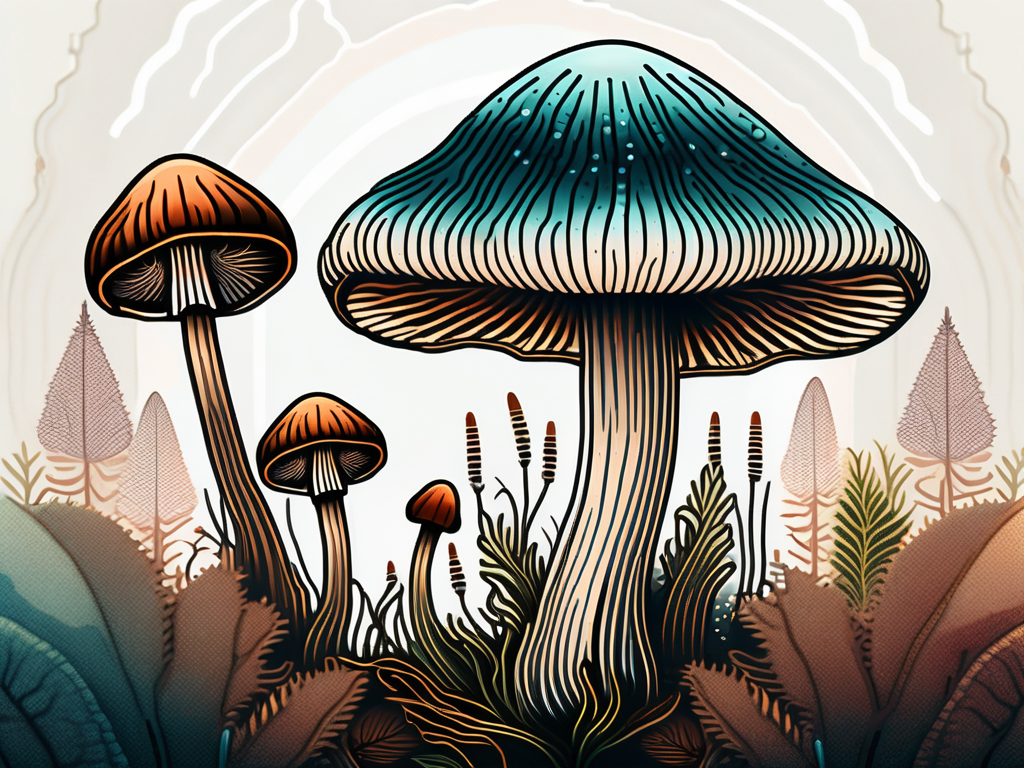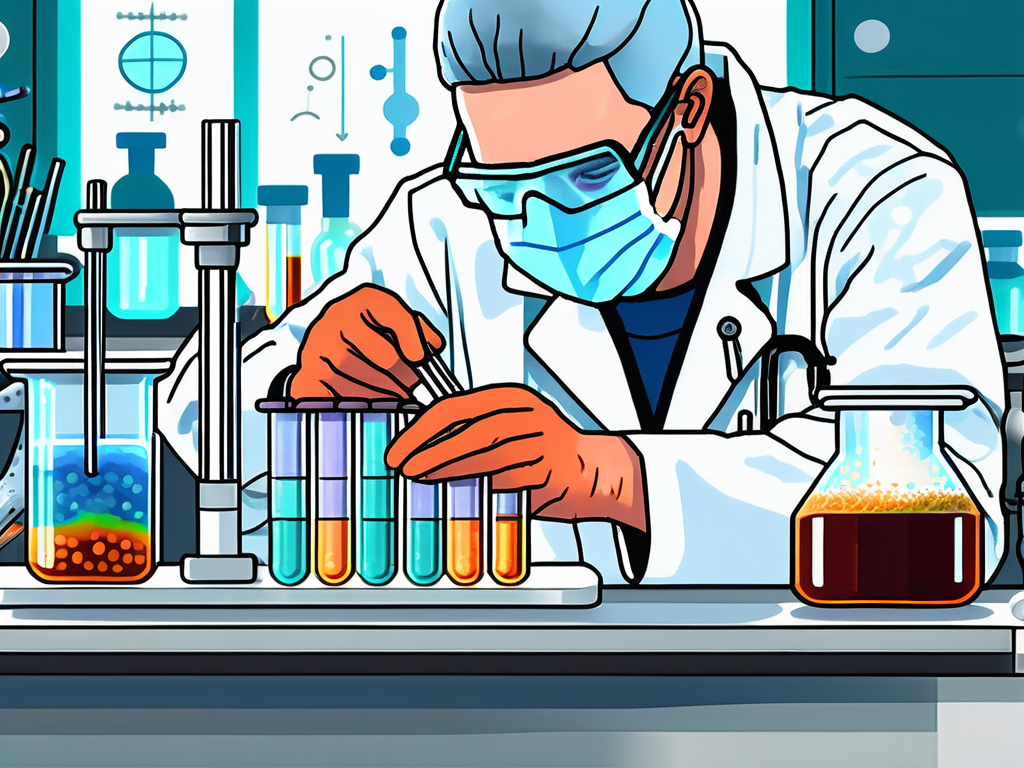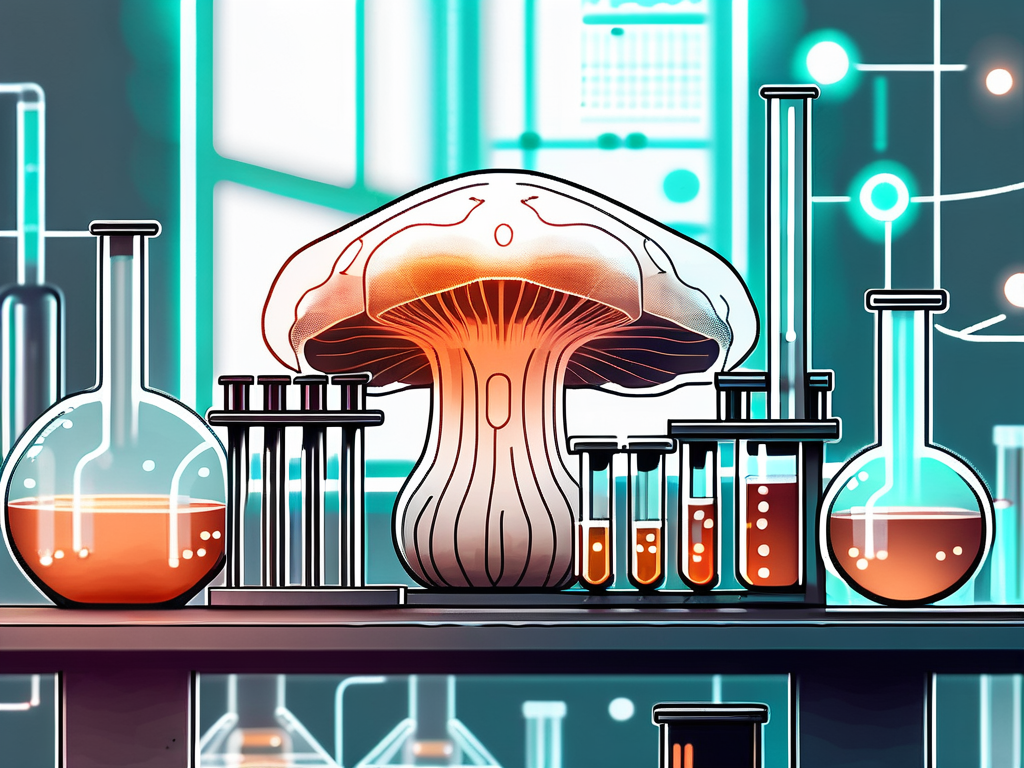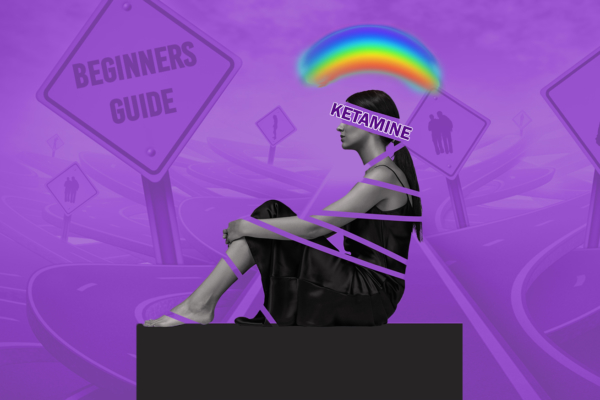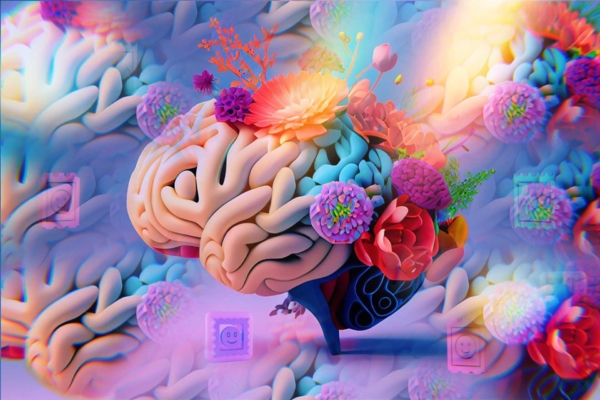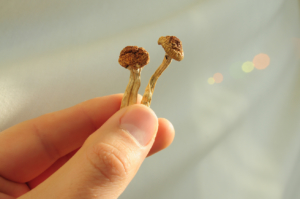
Psilocybin, a naturally occurring psychedelic compound found in certain species of mushrooms, has been used for centuries for its mind-altering effects. However, advancements in science have led to the development of synthetic psilocybin, a lab-produced version that offers new opportunities for research and medical applications.
Understanding the Basics of Psilocybin
Before delving into the world of synthetic psilocybin, it’s important to have a solid understanding of the compound itself. Psilocybin is primarily derived from certain mushroom species, such as Psilocybe cubensis and Psilocybe semilanceata. These mushrooms contain varying levels of psilocybin, which is responsible for the psychedelic experiences associated with their consumption.
The Natural Origins of Psilocybin
The use of psilocybin-containing mushrooms dates back centuries, with indigenous cultures incorporating them into religious and spiritual practices. These mushrooms were revered for their ability to induce altered states of consciousness, leading to profound insights and experiences.
Psilocybin mushrooms have been a part of human culture for millennia, with historical evidence suggesting their use in rituals and ceremonies by ancient civilizations. The Aztecs, for example, referred to certain species of psilocybin mushrooms as “flesh of the gods,” highlighting their sacred and revered status in spiritual practices.
The Transition to Synthetic Production
With advancements in chemistry, scientists have been able to replicate psilocybin in the lab, yielding synthetic psilocybin. This artificial variant provides researchers with a more controlled substance for studying its effects and potential applications.
Synthetic psilocybin offers a level of purity and consistency that is difficult to achieve with naturally occurring mushrooms. This precision in dosage allows researchers to conduct more accurate studies on the effects of psilocybin on the brain and its potential therapeutic benefits. The shift towards synthetic production also raises ethical questions regarding the commercialization of a substance deeply rooted in cultural and spiritual traditions.
The Science Behind Synthetic Psilocybin
Understanding the chemical structure and synthesis process of synthetic psilocybin is crucial in appreciating its potential. The compound consists of a core structure called indole, which is modified with various functional groups, contributing to its psychoactive properties.
Synthetic psilocybin has garnered significant attention in recent years due to its therapeutic potential in treating mental health conditions such as depression, anxiety, and PTSD. Researchers are exploring the precise mechanisms through which psilocybin interacts with the brain to induce therapeutic effects, shedding light on its potential applications in modern medicine.
The Chemical Structure of Psilocybin
Psilocybin belongs to a class of compounds known as tryptamines. It shares similarities with neurotransmitters like serotonin, allowing it to interact with specific serotonin receptors in the brain. This interaction leads to the characteristic psychedelic effects experienced by users.
Furthermore, studies have shown that psilocybin can promote neuroplasticity, the brain’s ability to reorganize and form new neural connections. This neuroplastic effect is believed to underlie the long-lasting positive changes in mood and perception reported by individuals after psychedelic experiences.
The Process of Synthesizing Psilocybin
Synthetic psilocybin is typically produced through a multi-step chemical synthesis. Starting from readily available starting materials, scientists employ various reactions and purification techniques to assemble the desired compound. The synthesis process ensures a consistent and reliable source of psilocybin for research and potential medical use.
Moreover, advancements in synthetic chemistry have enabled the development of novel techniques for producing psilocybin more efficiently and cost-effectively. These innovations have paved the way for broader research initiatives exploring the therapeutic benefits of psilocybin and its potential to revolutionize mental health treatments.
Potential Medical Applications of Synthetic Psilocybin
The therapeutic potential of psilocybin has garnered significant attention in recent years. Research suggests that it may hold promise in various mental health conditions, offering new avenues for treatment.
Psilocybin, the active compound found in certain species of psychedelic mushrooms, has demonstrated remarkable potential in the field of mental health treatment. Its unique ability to induce altered states of consciousness has opened up new possibilities for addressing conditions that were previously considered treatment-resistant.
Synthetic Psilocybin in Mental Health Treatment
Studies have shown that psilocybin-assisted therapy can provide relief for individuals suffering from treatment-resistant depression, anxiety disorders, and addiction. The compound’s ability to alter neural pathways and enhance emotional processing can facilitate transformative experiences with long-lasting positive effects.
Furthermore, the use of synthetic psilocybin in controlled therapeutic settings has shown promising results in not only alleviating symptoms but also addressing the root causes of various mental health disorders. By providing individuals with a new perspective on their thoughts and emotions, psilocybin therapy has the potential to catalyze profound personal growth and healing.
Future Research Directions for Synthetic Psilocybin
With the increasing recognition of psilocybin’s therapeutic potential, researchers are exploring its efficacy in a wide range of mental health conditions. Ongoing studies are investigating the compound’s effects on post-traumatic stress disorder (PTSD), obsessive-compulsive disorder (OCD), and even existential distress in terminally ill patients.
As the scientific community delves deeper into the mechanisms of action of psilocybin, new research directions are emerging to explore its potential applications beyond mental health. From enhancing creativity and problem-solving abilities to addressing existential questions about life and consciousness, the versatility of synthetic psilocybin presents a vast landscape of possibilities for future exploration and innovation.
The Legal and Ethical Implications of Synthetic Psilocybin
While researchers are excited about the possibilities that synthetic psilocybin offers, several legal and ethical considerations surround its use and distribution.
Synthetic psilocybin, a lab-created version of the psychoactive compound found in “magic mushrooms,” has garnered significant attention in recent years for its potential therapeutic benefits in treating mental health disorders such as depression, anxiety, and PTSD. The controlled environment in which synthetic psilocybin is produced allows for precise dosing and quality control, factors that are crucial in clinical settings.
Current Legal Status of Synthetic Psilocybin
The legal status of psilocybin varies from country to country, with some jurisdictions classifying it as a Schedule I substance, while others allow it for medical or religious purposes. The legality of synthetic psilocybin is often closely tied to the status of naturally occurring psilocybin-containing mushrooms.
In countries where psilocybin is strictly prohibited, the emergence of synthetic psilocybin has raised new questions for lawmakers and regulatory bodies. The distinction between natural and synthetic forms of the compound adds a layer of complexity to drug policy discussions, as synthetic psilocybin presents unique challenges and opportunities that differ from those associated with its naturally derived counterpart.
Ethical Considerations in Psilocybin Use and Research
As with any potent psychoactive substance, ensuring ethical use and responsible research practices is of utmost importance. Ethical considerations include informed consent, participant safety, and the responsible dissemination of research findings to avoid sensationalism or misinformation.
Moreover, the exploration of synthetic psilocybin’s therapeutic potential raises ethical questions regarding access and affordability. Will this novel treatment be accessible to all patients in need, or will cost and regulatory hurdles limit its availability to a privileged few? Addressing these ethical dilemmas is essential in ensuring that the benefits of synthetic psilocybin are equitably distributed and that vulnerable populations are not left behind in the wake of medical advancements.
Debunking Myths About Synthetic Psilocybin
Due to its association with counterculture and misinformation, synthetic psilocybin is often surrounded by myths and misconceptions. It is crucial to address these myths to provide accurate information to the public.
Addressing Common Misconceptions
One common misconception is that synthetic psilocybin is inherently dangerous or addictive. In reality, when used under controlled conditions and with guidance, it has been found to have a low potential for abuse and dependency. Furthermore, synthetic psilocybin is produced in a controlled laboratory setting, ensuring purity and consistency.
The Reality of Synthetic Psilocybin Use and Effects
When used responsibly and therapeutically, synthetic psilocybin can offer transformative experiences with potential long-lasting positive effects. Controlled settings, trained professionals, and proper integration are essential for maximizing the benefits while minimizing any potential risks.
It is important to note that synthetic psilocybin is not a magic cure-all. It should not be seen as a quick fix or a recreational substance. Rather, it should be approached with respect and caution, as it can bring about intense and profound experiences that require careful guidance and support.
Research has shown that synthetic psilocybin can be particularly effective in the treatment of mental health conditions such as depression, anxiety, and post-traumatic stress disorder (PTSD). It has the potential to provide individuals with a new perspective, helping them break free from negative thought patterns and gain insights into their own emotions and behaviors.
Furthermore, synthetic psilocybin has shown promise in the field of addiction treatment. Studies have indicated that it can help individuals overcome substance abuse by facilitating a shift in mindset and promoting self-reflection. It is important to note, however, that this type of therapy should always be conducted under the supervision of trained professionals.
In conclusion, synthetic psilocybin represents a significant advancement in our understanding and utilization of psilocybin. With its potential for medical applications and ongoing research, this lab-produced compound offers a promising avenue for mental health treatment. As legal and ethical considerations continue to evolve, it is crucial to separate fact from fiction and promote responsible use and research practices to fully harness the potential of synthetic psilocybin.
